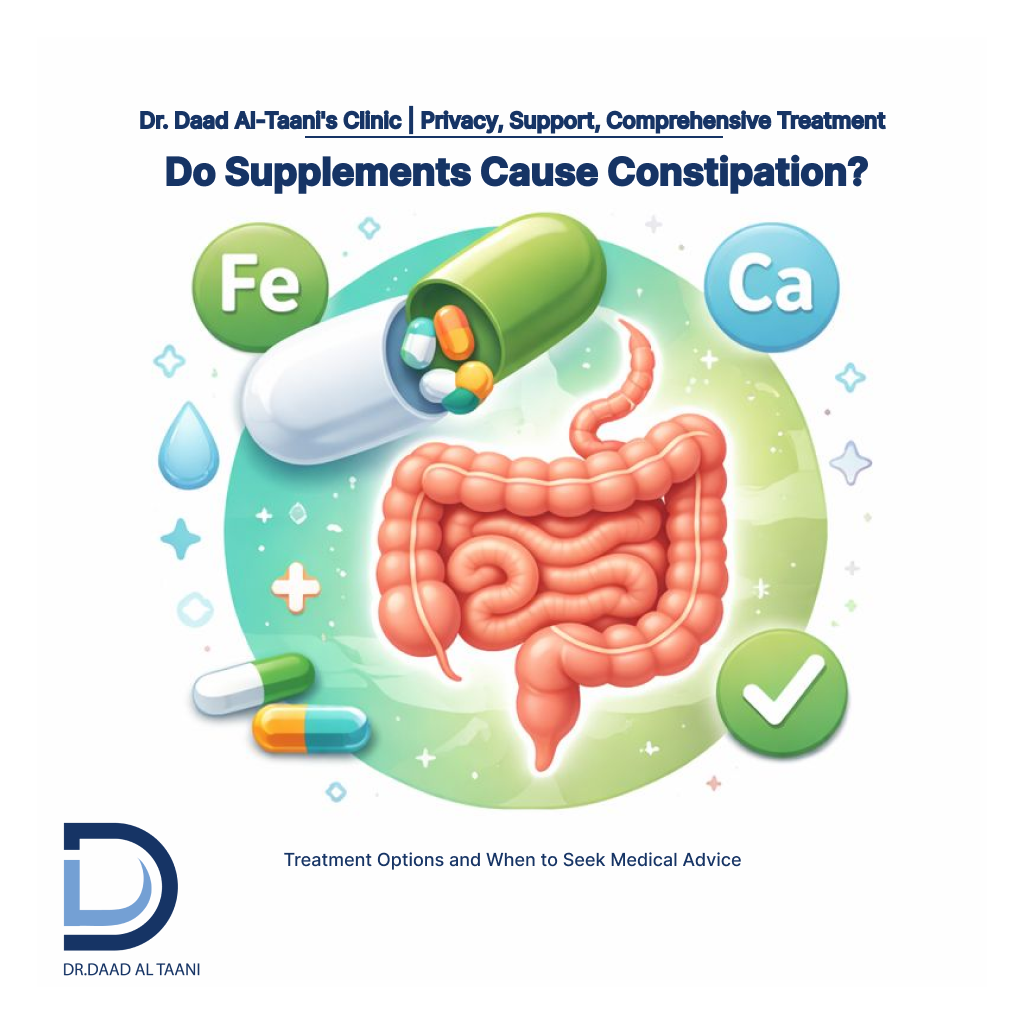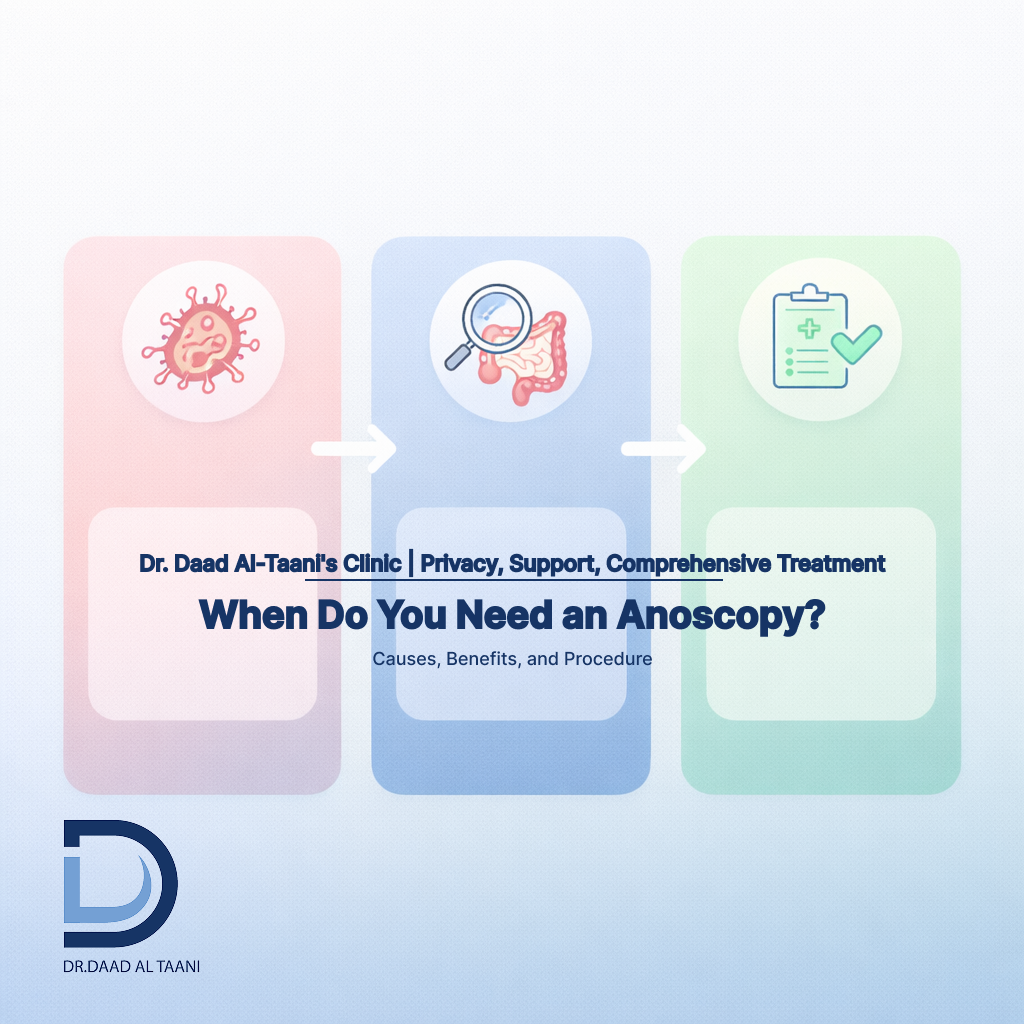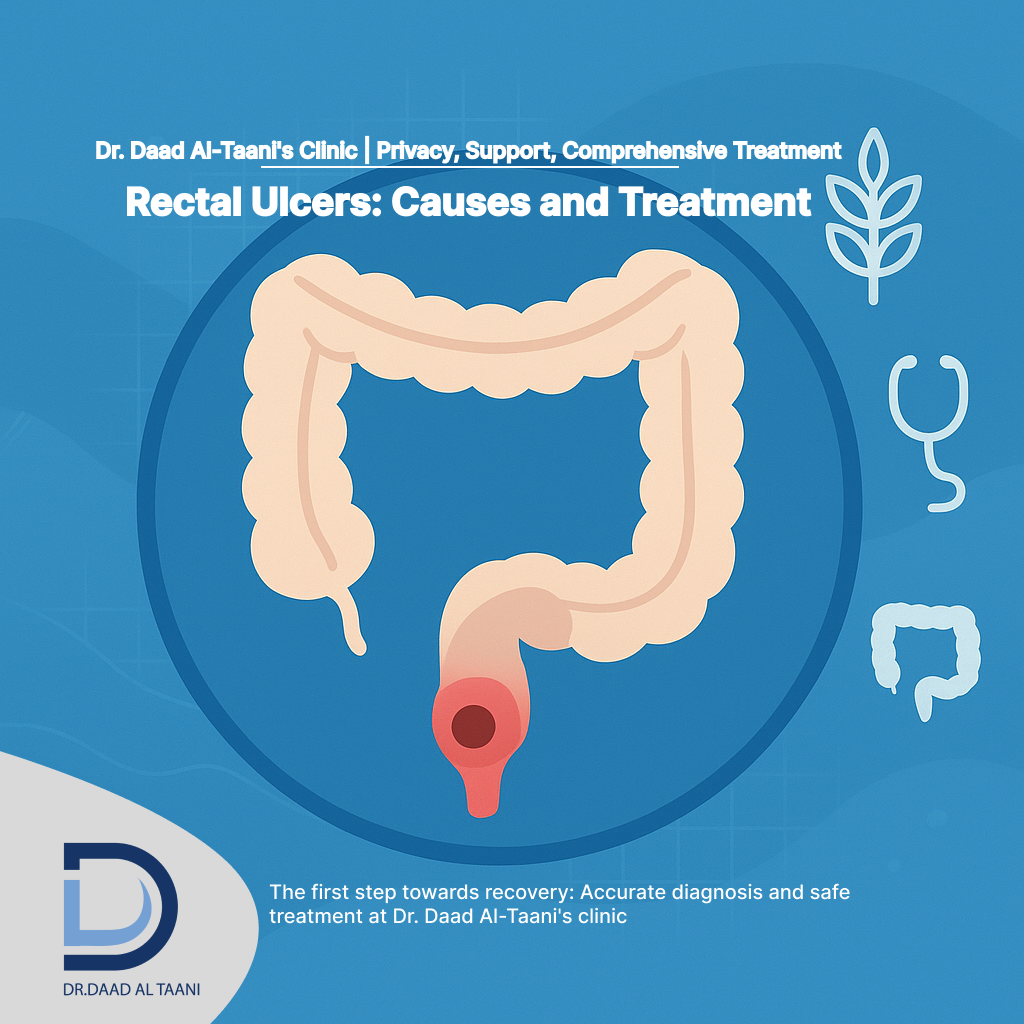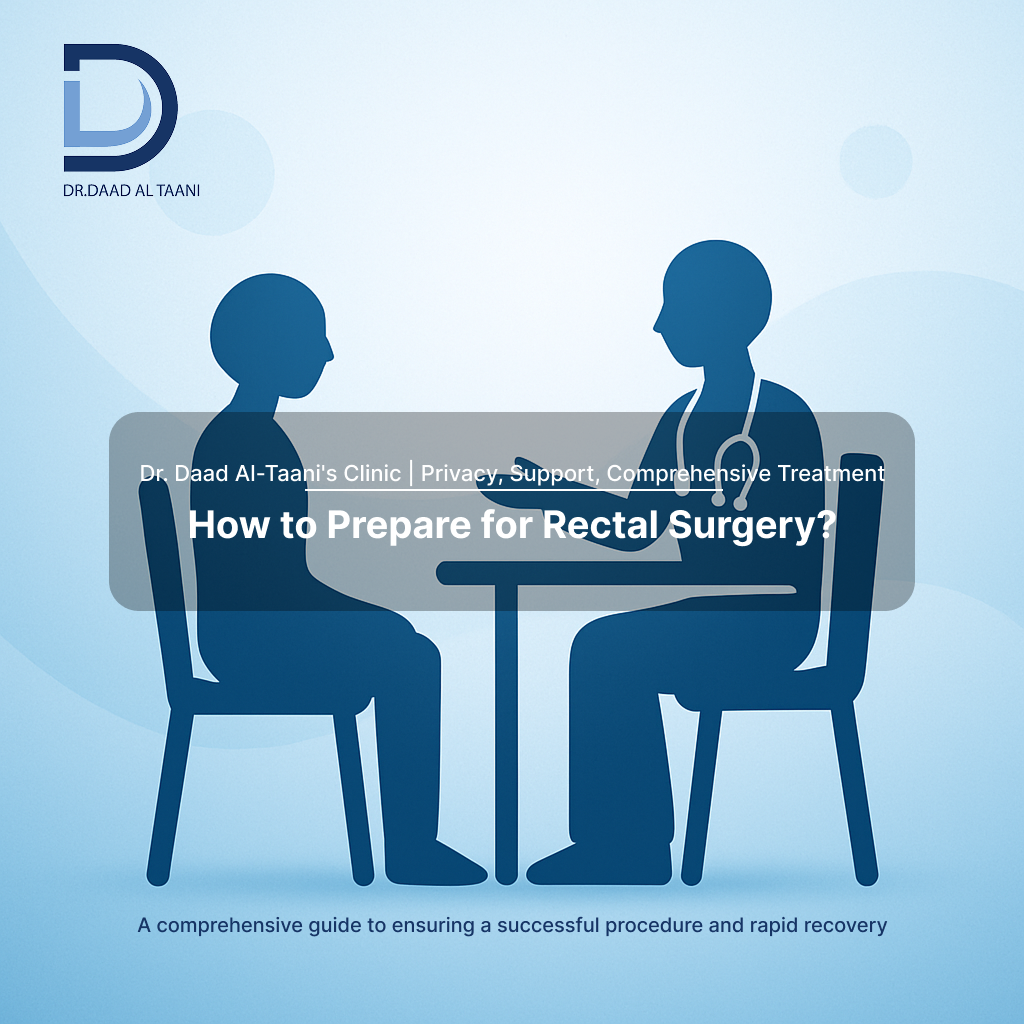Introduction to Anal Abscess and Its Causes
An anal abscess is a localized collection of pus that forms in the anal area due to inflammation or blockage of the anal glands. This condition is typically caused by a bacterial or fungal infection in the region. Individuals affected often experience severe pain and swelling around the anus. In some cases, symptoms may be mild and manageable with simple treatments. However, more advanced cases may require surgical drainage of the abscess.
The causes of anal abscesses vary. One of the most common reasons is the blockage of the anal glands, which occurs when the glands fail to function properly. Excessive sweating and humidity—especially in hot climates like Dubai—can also increase the risk of developing an abscess. Additionally, chronic conditions such as Crohn’s disease may contribute to the formation of anal abscesses. An untreated anal fissure can also lead to the development of an abscess.
The Importance of Early Diagnosis and Specialized Treatment
Early diagnosis is crucial when dealing with an anal abscess. Identifying the condition in its early stages can help prevent complications such as the development of an anal fistula, which is more complex to treat. Fortunately, there are now a range of advanced treatment options available.
Dr. Daad Al Taani, based in Dubai, is a recognized specialist in treating such conditions. With extensive experience in managing anal abscesses, fissures, and fistulas, she offers modern medical solutions designed to accelerate healing and minimize complications. In cases where an abscess progresses into a fistula, advanced procedures can significantly improve the patient’s condition.
It is worth noting that Dr. Daad Al Taani shares valuable medical advice through her YouTube channel. Her guidance covers both prevention and treatment, particularly tailored to individuals living in hot climates like Dubai. If you are experiencing any similar symptoms, it is highly recommended to consult a specialist promptly to receive the appropriate care.







